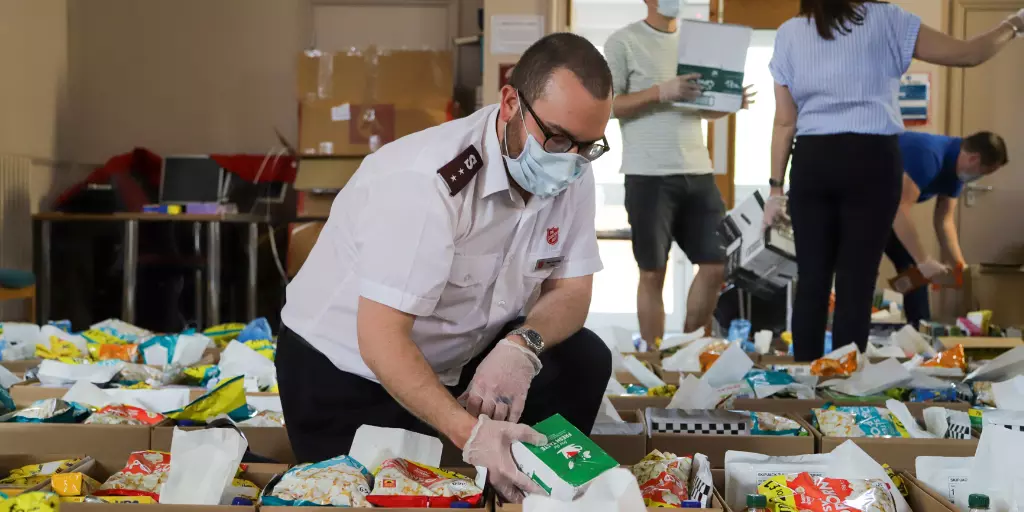Salvation Army concerned for vulnerable in post covid jobs hunt
published on 26 Jun 2020
Most vulnerable pushed to the back in post covid jobs hunt The Salvation Army warns.
The Salvation Army’s Employment Plus service is warning that unemployment will rise so fast, job centres will not be able to cope and the most vulnerable job seekers will be left behind.
With over 5 million people [1] already claiming Universal Credit even during the job retention scheme, research [2] suggests that far more jobs are still at risk during the lockdown.
The Salvation Army specialises in helping the most vulnerable people find work. Its Employment Plus service supports people such as the long-term unemployed, those who lack computer skills, or who have health needs that affect the work they can do.
The warning comes on Employability Day, designed to celebrate employability specialists who support people who struggle in the jobs market. They help people like Jobseeker ‘David’ who attended the Employment Plus service, he said: “When Covid-19 happened I was in full time employment and it was my ideal job but by the third extension of lockdown my employers decided to let me go. I was so worried what was going to happen financially however I contacted The Salvation Army and after speaking to my advisor he found me a vacancy with the Covid-19 track and trace team.
“I now feel I’m making a difference again, not only to my family but to people affected by the coronavirus.”
To better support unemployed people and their families, The Salvation Army is calling on the Government for:
- A regional rethink from Jobcentres on how to consistently deliver support to people who need help to improve their digital literacy and budgeting skills
- A local rethink on the pressures that Work Coaches face including lowering caseloads to allow staff to identify and properly support vulnerable claimants; and
To prevent the newly unemployed falling into debt The Salvation Army is also calling for:
- An end to the five-week wait for a first payment of Universal Credit by changing advance payments into a one-off grant for all new claims.
- Re-think DWP’s offer of support for people with mental and physical ill-health who are claiming Universal Credit so that their needs are met
Rebecca Keating, director of Employment Plus at The Salvation Army continued:
“We recognise that the Department for Work and Pensions put in sterling efforts to ensure the two million newly unemployed by the lockdown economic shock were signed up to Universal Credit.
“But our own research has found that there is overwhelming evidence that many people struggle to apply through the mainly digital Universal Credit system meaning as well as being unable to buy food or pay bills they are also not able to access support to find a job.
“Jobcentres are at high risk of being completely overwhelmed with millions of people looking for work. Many of those people will have fresh job skills, meaning the long-term unemployed will find it even harder to get work, and are at risk of losing the support they need as jobcentre work coaches find their caseloads grow exponentially.”
Notes to Editors
[1] Xxplore, Department for Work and Pensions:
https://stat-xplore.dwp.gov.uk/webapi/jsf/dataCatalogueExplorer.xhtml
[2] McKinsey, 'Covid-19 in the United Kingdom: Assessing jobs at risk and the impact on people and places':
